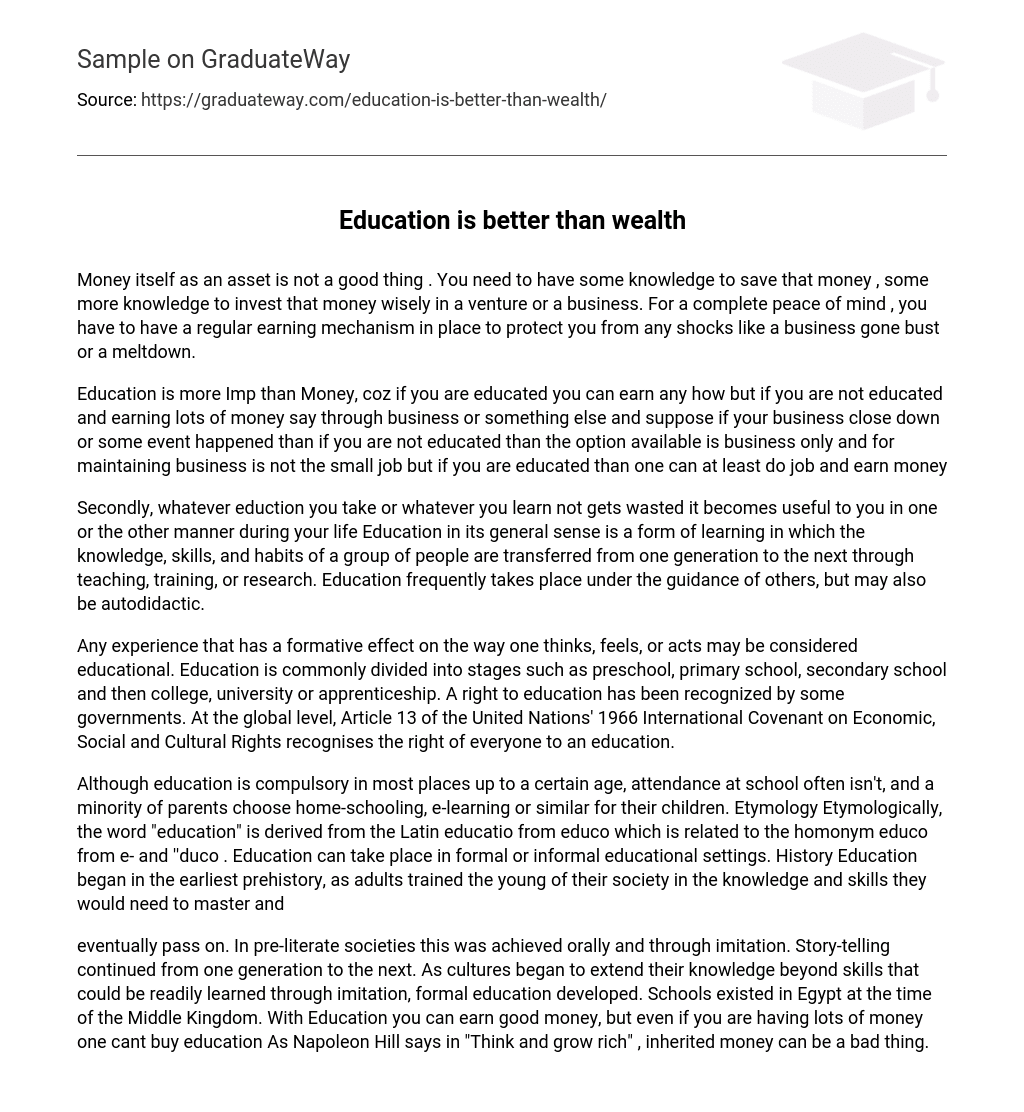When considering money as an asset, it is not inherently advantageous. It necessitates expertise to effectively save and even more knowledge to make prudent investments in ventures or businesses. To attain genuine tranquility, it is essential to establish a dependable means of earning income that can protect you from potential setbacks like a failed business or economic downturn.
Education holds greater significance than money as it opens up diverse avenues for earning. Nevertheless, individuals lacking education who amass wealth through entrepreneurship or other means may encounter challenges when their business fails or unforeseen circumstances arise. Without an education, they are left with limited options and the arduous task of persevering with their business. Conversely, education grants the opportunity to seek employment and generate income.
Moreover, education and learning in any form are advantageous and provide diverse benefits in various aspects of life. Education, broadly speaking, encompasses the acquisition of knowledge, skills, and behaviors from one generation to another through teaching, training, or research. Although education typically entails guidance from others, it is also feasible to acquire knowledge independently.
Education includes any experience that affects a person’s thoughts, emotions, or actions. It is commonly divided into different stages like preschool, primary school, secondary school, and higher education which encompasses college, university, or apprenticeship. Some governments recognize the right to education. Moreover, globally, Article 13 of the United Nations’ 1966 International Covenant on Economic, Social and Cultural Rights guarantees everyone’s right to obtain an education.
Despite the requirement for education in many regions until a certain age, some parents opt for alternatives like home-schooling or e-learning for their children. The term “education” is derived from the Latin word educatio, which comes from educo and is associated with the word educo originating from e- and “duco.” Education can take place in formal or informal settings. Since ancient prehistoric times, adults have been passing on crucial knowledge and skills to younger members of society.
In pre-literate societies, the passage of knowledge occurred orally and through imitation. This tradition of story-telling continued from one generation to another. However, as cultures advanced and sought to expand their knowledge beyond skills that could be easily acquired through imitation, formal education came into existence. During the time of the Middle Kingdom, schools were present in Egypt. Education not only offers the opportunity to earn a good income but also brings immense value that cannot be purchased with money. As mentioned by Napoleon Hill in “Think and Grow Rich,” inherited wealth can sometimes have negative consequences.





